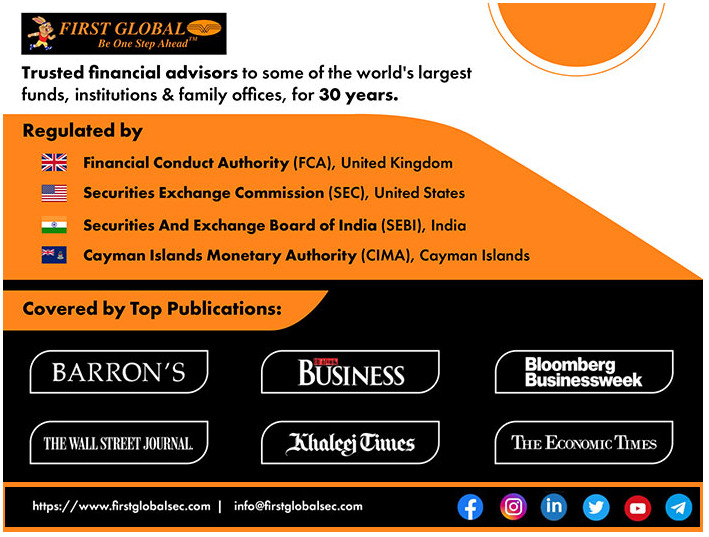The word Asset Allocation is bandied around rather casually these days. Hence it is important to understand what Asset Allocation is not.
We see the word asset allocation used quite widely and we should say, somewhat lightly these days with many financial advisors and fund managers claiming to do asset allocation strategies.
Only when one goes somewhat deeper into this one realises that the Asset Allocation being talked about is in the nature of large cap versus small cap Indian stocks or moving from value strategies to growth strategies in terms of stock choice within the Indian stock market.
This combined with some debt allocation, appears to be philosophy underlying the so called asset allocation strategy.
In fact, some of the investment documents we have seen even cite the same studies that we mentioned in the last blog that mention that 85 to 92% of a portfolio returns come from asset allocation, with specific stock selection contributing only 8 to 15%.
The problem? The studies cited take into account a portfolio consideration set that is across countries and across asset classes - not just couple of asset classes in a single country!
So for asset allocation strategy to really work in your favour, your consideration set must include all assets: Developed Market Equities, Emerging Market Equities, Developed market Fixed Income, Gold and Precious metals, other Commodities, Real estate (REITs) across countries and so on.
Just changing allocation across different categories of the Indian equity market or even Indian equity and debt markets is simply not good enough!
That is like playing football on 20% of the football field - which it is better than not playing at all...but can it really be called football?
Even within the Indian markets, it is important to look at asset classes beyond just debt and equity.
For instance, of the last 10 years, in 2 years Gold was the best performing asset class in India (partly due to currency movements) and in another year it was the second best performing asset class. In other years, real estate did extremely well. And now through REITs and some other instruments it is possible to get systematic exposure to real estate as well.
When we, at First Global, talk of asset allocation it means that in your consideration set are practically all the investible Asset classes in the world.
The other key is to have a dynamic and tactical asset allocation model, ie assets are to be reallocated based on the tactical view of various asset classes at any point in time.
Just crude measures like at an age of X years you should have 60% exposure to equity and 40% to debt simply don't work if you are looking to protect and multiply your wealth.
An in-depth understanding of the underlying asset classes is also important. Among other things this is to ensure that the Asset classes are really largely uncorrelated. That comes from data and long experience.
Is your money manager well versed across asset classes, across countries, across currencies?
If not, you need to be very careful because you may be getting trapped into the narrow expertise of your money manager, which is fine for him.
But can be disastrous for your portfolio.
For example, if one has a positive view on commodities and a positive view on Brazil and Russian equity markets, increasing exposure to both may not be really uncorrelated at all as commodity prices drive many of the large company earnings in these two markets.
Currency alone, or a single country exposure, can also change your portfolio return profile dramatically. But more on that another time.
To conclude, investing is about batting like Sunil Gavaskar: a steady, decidedly "unsexy" approach, careful risk management through diversification across asset classes (Gavaskar played shots all around the wickets, and played well across the world, and played pace and spin equally well).
Bottom up stock picking is a bit like Virendra Sehwag: brilliant when it works. Terrible when it doesn't. Never steady or predictable. So runs come with high volatility or standard deviation.
Who would you want managing your money: Gavaskar or Sehwag?
The answer is obvious, isn't it?
From the desk of:
Devina Mehra
Want to open your trading account? Email us on info@firstglobalsec.com and we will get you started super fast!


Economists Think Dollar's Fall May Explain the Recent ‘Rally’ by Steve Liesman
Einstein taught us about relativity in nature. Now come Devina Mehra and Shankar Sharma of First Global to teach us about relativity in financial markets -- and raise some serious questions about just what is driving stock prices.

First Global reports are quite credible and, on occasion, more than that.
What prompts this mention is Intel's earnings report and the fact that First Global has had a pretty good bead on the company and its stock.

AMD up again following First Global upgrade to ‘buy’ (AMD) By Tomi Kilgore
Analyst Kuldeep Koul at First Global upgraded Advanced Micro Devices (AMD) to "buy" from "outperform," given the "exceptional traction" that the chipmaker's Opteron line of processors has been able to get.

Baidu Climbs on First Global’s ‘Outperform’ Outlook
Baidu Inc., the operator of China’s most-used Internet search engine, rose to the highest price in two weeks after First Global rated the shares “outperform? in new coverage.

Personality counts: Walmart's frugal, but Target charms
"It's better to take a slight hit on [profit] margins and keep on moving and inventing," says First Global Securities. And at least for now, Target is inventing in a way that appeals to consumers with money to spend.

Dead Batteries
At 11 times trailing earnings, Energizer is cheaper; Gillette's multiple is 25. But cheaper doesn't mean better, says First Global.

Bipinchandra Dugam @bipinchandra90
@devinamehra @firtglobalsec
invested in both GFF-GTS and Super I50. Thank you very much for such wonderful investing experience with completely new approach. In my 15years of investing first product I felt which close to what customer want.

Shishir Kapadia @shishirkapadia1
@firstglobalsec @devinamehra
by far you are the best, I have not come across transparency, acumen, global expertise, exposure, protection of capital, delivering return from any fund/ fund managers. Invested very small size in 3 products will keep on increasing it over the period

Piyush Bhargava @PiyushB88762654
@devinamehra @firstglobalsec
Thanks you team FG specially Devina, my investment doubled in less than 3 years in SDPB As a investors & PMS distributor of your product looking to have a long-term relationship with the company.
@KarmathNaveen the person with whom I always interact

Sumeet Goel @GoelSumeet
Very happy & relaxed to be invested with first global pms

Shishir Kapadia@shishirkapadia1
Congratulations on super performance, above all transparency and systematic process are unmatchable.
One must opt this, if person consider him/her self as an investor. Very happy to be part of this since invested. FG has managed worst year (ie 2022) so efficiently and skillfully.

SY @SachinY95185924
With so much of volatility in the market, risk management is very important part & considering that FG is doing awesome work!!! Kudos to you Chief

Amit Shukla @amitTalksHere
Truly outstanding. As a retail subscriber to #fghum #smallcase, I can vouch for the Nifty beating returns (8% vs 3%) in last 1 year. Keep up the awesome work @firstglobalsec
We can load above testimonials on site as a scroller, and just below that we can add a section for compliments . Below tweets are comments and praises are related to our content, performance and some our direct compliments to you.

ADIT PATEL @ADITPAT11226924
Good team...
Special mention @KarmathNaveen .. he is soo helpful anytime of the day or night..

Hindustani @highmettle
Bought Peace with FG-Hum.Moving all funds from DIY investing to well managed and diversified PF at low cost.
It has doubled almost, excellent pick.Every small investor must invest in her FG-HUM Smallcase.

Suresh Nair @Suresh_Nair_23
I have 8 small cases and your has been the most rewarding ones .. thank you Devina.

Sayed Masood @SayedM375
There is absolutely no doubt that she is one of the best investors of India in modern times but more importantly, she shares the most sincere and sane advice with retail investors.

SY @SachinY95185924
Wow Superb Returns🔥 Congratulations Chief for being Number 1 among all PMS!!!
You are one of the sharpest mind in Global Stock Market

AnupamM @moitraanupam
Congratulations Devina, results talk in itself!

Abhishek @simplyabhi21
Congratulations ma’am @devinamehra ! The consistency you have in maintaining the top rank position is outstanding! 👏

Mihir Shah @Mihir41Shah
We are learning More about markets (& Life ) thanks to U than we learnt in our Professional courses.A BIg Thank You, Wish all get Teachers Like You!!

Sumit Sharma @MediaSumit
"The ability to be comfortable with being outside consensus is a superpower in investing...and in life." Devina ji hits the nail on its head!

Majid Ahamed @MajidAhamed1
Congratulations @devinamehra mam! All the best for long term returns as well.

Vinay Kumar @VinayKu05949123
This is the wonderful session I have ever attended till date. One of the most fruitful hour of my life. Devina madam, ur clarity on financial mkts is simply superb.The way u portray the facts supported by "data" about stock mkts is really astonishing.I will listen again.Thanks.

VIJAY @drippingashes
I loved to read your journey, insight and philosophy. It's a pleasure to read and know of your takes on market and life.

MNC🏹 @Focus_SME
Check & follow @devinamehra's timeline for lots of post debunking such rosy stories. Also, she gives amazing 🤩 sector directions/hints.

KLN Murthy @KLNMurthy2016
Good actionable insights, great article!

Suresh Nair @gkumarsuresh
Devina Madam is simply terrific... good knowledge, straight and simple thinking.
Very difficult to emulate such traits. I listen her past interviews from youtube.
Respect...!!!!

DD @AliensDelight
One of the brightest minds in the world of finance :)

Radhakrishnan Chonat @RCxNair
📣 Calling all investors! Just had an incredible interview with @devinamehra, Chairperson and MD of First Global. We discussed the importance of global diversification, effective asset allocation, and the risks of sitting on the sidelines. Trust me, you don't want to miss this!

siddarthmohta @siddarthmohta
Excellent performance. Flexibility is the key as you have mentioned it earlier also. Cannot have finite rules for infinite mkt opportunities.

Boom (বুম)@Booombaastic
To be honest, the insights which Devina madam brings in is very enriching..have learnt a lot from them...

Himanssh Kukreja @Himansh02428907
One of the most accurate analysts :)
I always look forward to you interviews mam

Abhijeet Deshpande @AbhijeetD2018
Madam, It is always a treat to read your insight, not only on business but on other topics also!!

Dada.AI @dada_on_twit
Thanks for this wisdom ma'am. Always love hearing your thoughts on everything equity. :-)

adil @zinndadil
Excellent points!
Can clearly feel this thread is a product of marination of many books and years of experience. 👍

Kamal thakur @Kamalgt10
Superb !!
Your knowledge, analysis & articulation is simply great 👍

Tanay @Tanay36232730
Follower on Twitter and Subsciber on YouTube of First Global, really helping me in my investment desicion. Thanks
Copyright 2019, All Rights Reserved. Developed By : Hvantage Technologies Inc. Maintain By : Aarav Infotech